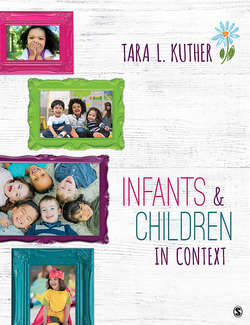Читать книгу Infants and Children in Context - Tara L. Kuther - Страница 160
На сайте Литреса книга снята с продажи.
Environmental Hazards
ОглавлениеPrenatal exposure to chemicals, radiation, air pollution, and extremes of heat and humidity can impair development. Infants prenatally exposed to heavy metals, such as lead and mercury, whether through ingestion or inhalation, score lower on tests of cognitive ability and intelligence and have higher rates of childhood illness (Sadler, 2018; Vigeh, Yokoyama, Matsukawa, Shinohara, & Ohtani, 2014; Xie et al., 2013). Exposure to radiation can cause genetic mutations. Infants born to mothers pregnant during the atomic bomb explosions in Hiroshima and Nagasaki and after the nuclear power accident at Chernobyl displayed many physical deformities, mutations, and intellectual deficits. Prenatal exposure to radiation is associated with Down syndrome, reduced head circumference, intellectual disability, reduced intelligence scores and school performance, and heighted risk for cancer (Chang, Lasley, Das, Mendonca, & Dynlacht, 2014). About 85% of the world’s birth defects occur in developing countries, supporting the role of context in influencing prenatal development directly via environmental hazards but also indirectly through the opportunities and resources for education, health, and financial support (Weinhold, 2009).
